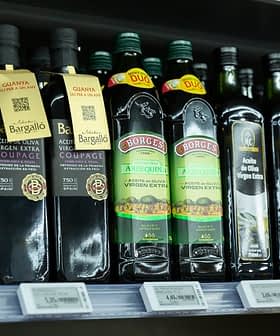ECOLÓGICO / ORGANIC
Organic foodstuffs have already taken up residence in one fourth of Spanish households. This is because there is a group of people who are perfectly familiar with this product type, who conceive them to be “more natural” and who buy them, mainly, in hypermarkets. Or at least these are the results of a study in which the Spanish Government identifies the profile and habits of the organic consumers in our country.
Olivia, 40 years old, from Madrid, married and with two children under the age of 12. She has a university education and admits to a certain sensitivity towards the environment and sustainability. For the last 5 years she has been consuming organic products, the majority of which she buys in hypermarkets because she believes they help her care for her own health and that of her family.
This short description outlines the “identikit” of a Spanish consumer of ecological products. It also coincides with the profile drawn up by the current Ministry for Agriculture, Food and the Environment, based on the conclusions of a study that claims organic food is already present in one fourth of Spanish homes. They even go so far as to represent 24% of the shopping basket and, given their versatility, the inhabitants combine them with an infinite amount of delicious dishes.
Or at least this is the interpretation after reading Characterisation of the organic food consumer typology and their socio-demographic profile in Spain, which had the objective of characterising the current type, the socio-demographic profile and the geographic location of the consumers in the national territory, while also determining new consumer types and getting to know the current reasons for purchase.
This project forms part of the activities financed by the Government within the Collaboration Agreement with the Spanish organic products federation, Federación Española de Empresas con Productos Ecológicos (Fepeco).
They know what they’re buying
After extrapolating the data gathered from 450 interviews, the analysis concludes that 26% of Spaniards recognise the identification labels, know exactly what an organic product is and consume it, at least, once per month.
On the contrary, only one third of the society distinguishes the characteristic labelling and, strangely, very few Spaniards identify the new European logo, effective since July 2010.
Among the most demanded product categories are fresh fruit and vegetables, which are precisely the port of access to this type of market. Next come chicken and meat. And among the least in demand, is children’s food.
Unfortunately, there is little to add about extra virgin olive oil, as the study did not analyse it as an independent product. It is probably included within one of the product categories analysed, such as “Other types of packaged foods”, “others” or, even under the heading of “Snacks, sweets, jams, honey…”. A deficiency that is quite serious given that it is the icon of our eating pattern and constitutes one of the most experienced foodstuffs when it comes to ecological production.
In any case, the study does prove that the preferred establishment type for purchases is the hypermarket, over and above specialised shops.
More women than men
The “eco-consumers” are people committed to sustainability and the environment, the majority are professionally active and female. Their average age is 40 years old, they have children under the age of 12, good academic education levels and high purchasing power.
In spite of living in homes throughout the Spanish territory, the majority is concentrated in the Northeast and centre of the Peninsula, especially in homes with four members located in large cities.
According to their attitudes to environmental, ecology and health aspects, four conceptual groups were identified:
• Convinced: this is the most important group as it represents 32% of the total. Its members are in favour of organic and sustainable consumption, which they have been practicing for over 7 years. They call for a more natural and environmentally-friendly lifestyle.
• Un-involved: this group includes 26% of the organic consumers. It is made up of people who acquire this type of product following the current trends. They are the least likely to increase their consumption of these foodstuffs.
• Ecologists: inhabitants who have enormous sensitivity towards the environment and are willing to try new products. They constitute 21%.
• Concerned about health: the majority are women seeking personal care based on ecological eating habits and physical exercise. For this group, which represents 21% of the total, the price factor stops them from buying more organic products.
Positive tendency
The conclusions of this survey show considerable growth potential for the ecological products. Indeed, the respondents reflect more knowledge about sustainable consumption and are willing to increase their purchases.
Among the reasons mentioned when buying these foodstuffs, the first indicated is concern for health, both when it comes to beginning consumption and for continuing. However, it is also true that the majority of them have been feeding their bodies these food types, which they consider “more natural”, for an average of over 5 years.
According to the research, those who feed off bio products also buy articles from other different categories, especially related to energy-saving in low-consumption light bulbs, class A white goods, etc.
More availability, more consumption
Although this segment is gaining ground in the Spanish food sector in general, the Government believes it is essential to promote consumption, by increasing market penetration and facilitating access.
To do so, it is essential to work on the barriers that prevent an intensification of consumption, including the limited availability and price, which constitute the main reasons that oblige users not to buy certain categories.
Undoubtedly, with this analysis the Ministry reflects the strong expansion potential of the product made in our territory by following the precepts of organic agriculture. It is important to remember that Spain is the second European country and the eighth in the world when it comes to surface area dedicated to organic crops.
Más información / Further information: marm.es and fepeco.es
Olivarama articles also appear in Olivarama magazine and are not edited by Olive Oil Times.









